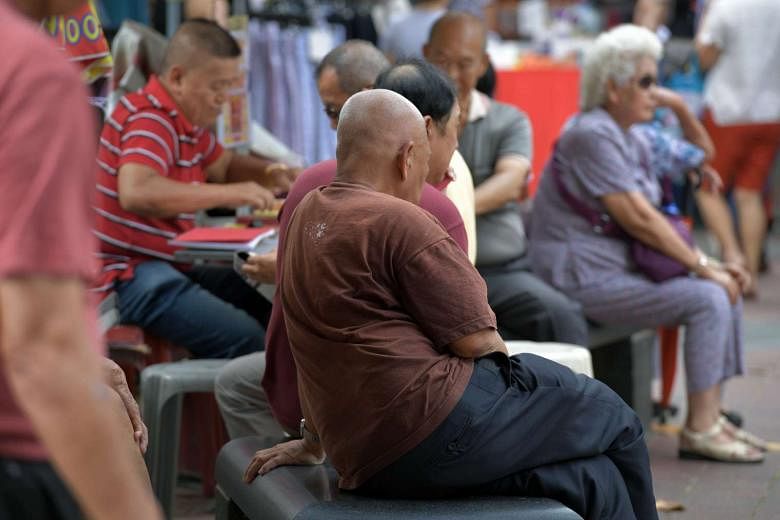More than a century ago, death was a social event among family and friends, occurring in the home setting and drawing the community together. With the advent of medical advances promising the hope of cure and the prolonging of life expectancy, people with advanced illnesses would seek the latest treatments at healthcare institutions.
Many people die at very advanced stages of chronic illness in hospitals and not at home. Dying stopped being a part of life. It became taboo, unfamiliar and invisible, expected only in old age. The dying process is medicalised, something that can be postponed. When medicine loses the battle to cure, it is deemed to have failed.
Palliative medicine developed as a counter-culture to the modern imperative of medicine to cure and to prolong life at all costs. It is an approach that improves the quality of life of patients and their families facing life-threatening illness and is now integrated into mainstream biomedicine. However, there is a huge gap to cross before we become a death-friendly and a death-literate society.
Death remains a dirty word, heavily laden with superstition and cultural taboo. As a doctor, I have witnessed the struggle and confusion that patients and their loved ones face when negotiating the dying process. They are rarely prepared, if at all, and there may be complicated grief, regrets and loss of peace.
To help mitigate such issues, Advance Care Planning (ACP) can be introduced. ACP is the process of eliciting people's values and wishes regarding care in the event that they are seriously ill. As an advocate for ACP, I have met my fair share of resistance and apprehension from both patients - especially the elderly - and healthcare professionals.
However, research has shown that people who have conversations with their physicians and loved ones about end-of-life wishes have higher satisfaction and better quality of life at the terminal phase. Post-bereavement depression in loved ones is lessened, too. Patients are also less likely to receive burdensome interventions and are more likely to receive palliative care. Paradoxically, when introduced earlier in the patient's illness trajectory, palliative care can even improve survival.
ACP conversations are currently targeted at people with advanced illnesses in hospitals, hospices and palliative home care services. These conversations may include discussions on the extent of treatment and preferred place of care and demise.
However, a significant number of people are mentally incapacitated from making their own decisions at this stage. They face a lot of stress when they are seriously ill and broaching end-of-life conversations for the first time may not be ideal.
ACP conversations are not just for the very ill. They are also suitable for healthy individuals. One part of ACP involves nominating a spokesman if one is struck with a sudden neurological catastrophe that results in mental incapacity. This spokesman must know your preferences for end-of-life care. The starting point of ACP conversations is to explore a person's values and beliefs, fears and concerns.
Such discussions need not be restricted between people and healthcare professionals. Loved ones can be a part of the process. Useful online tools are available at www.makingyourwishesknown.com and www.livingmatters.sg.
Voluntary welfare and philanthropic organisations have taken on the mantle of advocating for a public discourse on living and dying well. In 2014, the Lien Foundation teamed up with the Ang Chin Moh Foundation and ArtsWok Collaborative to introduce Both Sides Now, an immersive arts experience on end-of-life issues. In the same year, the Good Death Project was launched by Montfort Care with the aim of promoting a "death-friendly community".
While grassroots efforts are working the ground, we have not reached the tipping point and it remains a hard sell in Singapore to get people talking about living and dying well. A different tack is needed to break the shroud of silence. There needs to be deep community engagement, as well as visible efforts by the Government and professional bodies to promote a healthy discourse on death and dying.
Public awareness campaigns should be staged on mainstream and social media, akin to the Dying To Know Day in Australia which aims to bring death to life through community events and social action. Community centres can be focal points, with regular workshops to encourage "die-logues" or end-of-life conversations.
To truly increase death literacy, we should start with the young. Death education, like sex education, should have a place in the core curriculum. Beyond being better prepared, having open discussions about death and dying has the immense potential to foster a value-laden perspective towards life. In understanding death as a normative life event, one has a better appreciation of the finitude of life and how to make the most of it. Trite but true, a common refrain I hear from patients when faced with their impending demise is: "I wish I had…" We do not have to wait for the end of life to fulfil our bucket list.
Death is the one thing which is certain in life. In realising our own mortality, death becomes a part of life again. Just as how we treat the terminally ill is a reflection of the heart of biomedicine, how we talk about death and dying is a reflection of our maturity as a society and our awareness of being human.
•Dr Raymond Ng is the clinical lead for advance care planning and a consultant in palliative care at Tan Tock Seng Hospital, a member of the National Healthcare Group.

